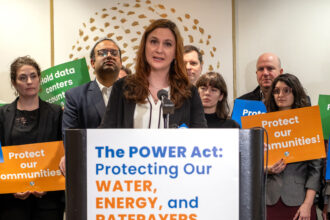You might have read this story about cities in Los Angeles County selling their stimulus transportation funds to one another for cash – a big no-no, apparently, for the Los Angeles Metropolitan Transportation Authority.
So now the MTA is canceling the deals. Which is, indeed, a positive development.
But ending the backroom swaps does nothing to cure the underlying problem: the fact that the MTA is doling out a minimum of $500,000 in federal stimulus money to every one of LA County’s 88 cities for "shovel-ready" transportation improvements, irrespective of those cities’ actual needs.
Several of those cities are so tiny that they have no transportation projects ready to go and no immediate need for half a million dollars in transportation funds.
Take Bradbury, population 1,000, for an example of what happened.
Like other small cities, Bradbury didn’t want to forsake its funds from the MTA, so it pre-sold its $500,000 share of restricted federal stimulus money to the City of Torrance in exchange for $315,000 in unrestricted cash.
Rolling Hills, a 1,900-resident gated community association with no public streets, tried a similar swap. City Manager Anton Dahlerbruch said the community simply could not benefit from the transportation funds, so it traded its $500,000 for $305,000 in unrestricted money from Rancho Palos Verdes. Dahlerbruch explains:
"We thought we’d exchange it for general fund money and we’d invest it back into the community for a public works project, such as undergrounding (utility lines). It would have been in the spirit and the intent of the federal legislation."
The Congressional House Committee on Transportation and Infrastructure has since told the New York Times that the swaps are "illegal." But if it wasn’t for The Pasadena Star-News dragging the deals to light this week, they may have slipped past the public.
A few city councils had already approved the swaps. And for their part, MTA staffers are said to have initially authorized – and even encouraged – the bartering, before the MTA board officially made it clear that "all the money has to be spent on transportation."
The agency now says cities can trade their stimulus dollars for equal amounts of LA County Measure R transportation funds, which can be used later. To qualify, cities must submit a letter to the MTA, outlining how Measure R money would be used. The deadline is today. The other option is for the MTA to take back the funding and re-allocate it to other cities who need it.
What a mess. And to think it could have been avoided with the agency’s efficient funneling of the stimulus in the first place.
The MTA will be allocating a hefty $215 million or more of federal stimulus funds to local cities to improve LA county’s transportation infrastructure. Those millions should be sent to large priority projects that can have a long-term impact, not to small cities with no apparent need.
Failure to do that undercuts the stimulus effect.
Transportation spending should not to be taken lightly. Wise investment in the sector is climate policy. America’s stimulus funds should go into the best clean transportation projects where possible, and not a dollar of that money should be wasted, anywhere.
About This Story
Perhaps you noticed: This story, like all the news we publish, is free to read. That’s because Inside Climate News is a 501c3 nonprofit organization. We do not charge a subscription fee, lock our news behind a paywall, or clutter our website with ads. We make our news on climate and the environment freely available to you and anyone who wants it.
That’s not all. We also share our news for free with scores of other media organizations around the country. Many of them can’t afford to do environmental journalism of their own. We’ve built bureaus from coast to coast to report local stories, collaborate with local newsrooms and co-publish articles so that this vital work is shared as widely as possible.
Two of us launched ICN in 2007. Six years later we earned a Pulitzer Prize for National Reporting, and now we run the oldest and largest dedicated climate newsroom in the nation. We tell the story in all its complexity. We hold polluters accountable. We expose environmental injustice. We debunk misinformation. We scrutinize solutions and inspire action.
Donations from readers like you fund every aspect of what we do. If you don’t already, will you support our ongoing work, our reporting on the biggest crisis facing our planet, and help us reach even more readers in more places?
Please take a moment to make a tax-deductible donation. Every one of them makes a difference.
Thank you,












